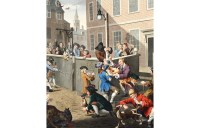Already a subscriber? Log in
Keep reading for free
Subscribe today to get 3 months’ free digital access.
- Unlimited access to our website and app
- Enjoy Spectator newsletters and podcasts
- Explore our online archive, going back to 1828
- Plus, three months’ free digital access to the Telegraph





Comments
Join the debate for free — this month only
This month, be part of the conversation with other Spectator readers by getting your first three months for free. We’ll also give you three months’ free digital access to the Telegraph.
UNLOCK ACCESS 3 months for freeAlready a subscriber? Log in